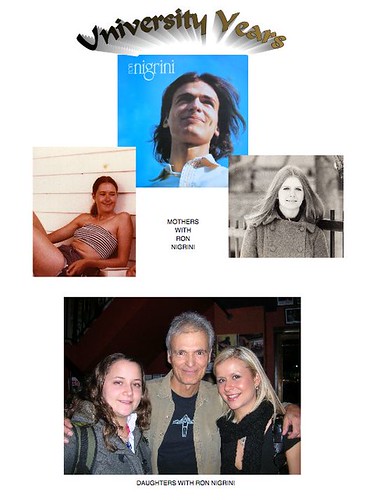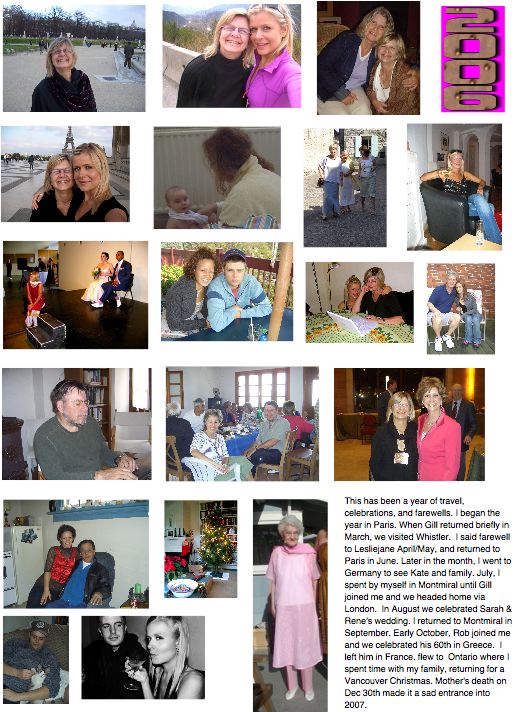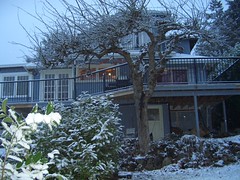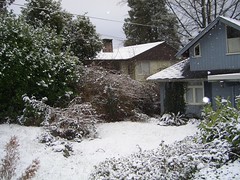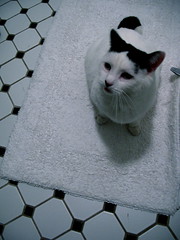
For the past three days I've been painting the small bathroom and hallway of the main floor of our house. I thought I wanted colour. As I mentioned in my last post, I had a number of books and paint chips but the pictures of bathrooms I liked best were white. Boring, I thought at first. I want colour in my life... but, finally, I realized that colour in my life doesn't mean that I have to have it in this small room. I love the lightness, the look of white from floor to celing to door. Pristine.
And all the while I was painting I was thinking about the imagination and passion.
It all began pre-painting. I walked to the paint store - a good long walk - and this isn't like me. I am not good at exercising though I know I should be because I feel better for it. But the only way I can get myself moving is to have an ulterior motive, usually a destination. So I walked and better still, the sun was shining; but forty-five minutes later when I found myself outside the paint store, I realized I was ravenous. I checked my purse and I had money but no book. I can't eat alone without a book. So I went to Indigo. I didn't want a novel as I have one on the go so I checked the non-fiction section and found Naomi Wolf's "The Treehouse: Eccentric Wisdom from my Father on How to Live, Love, and See." I had liked Wolf's "Promiscuities" so I picked up the book and checked the back cover and Erica Jong - whose writing I admire - praised it: "This book is a hard-earned gift. It is also the most transformative of Naomi Wolf's books." I bought it not knowing what to expect.
From the first two sentences, Wolf captured me: "Leonard Wolf, my father, is a wild old visionary poet. He believes that the heart's creative wisdom has a more important message than anything else, and that our task in life is to realize that message." I felt as I did when I first discovered, in my teens, Simone de Beauvoir: this is the book I need to read at this moment in my life. I have felt so cloudy, poor, jobless, dull even.
When I took breaks from my painting, I read. By the time I finished the second chapter, in which Wolf speaks of her unusual childhood and how she and her brother were allowed, encouraged even, to play using their imaginations, I was excited. I was well into the third chapter, when I suddenly felt an inexplicable desire to write out my thoughts. I looked around for my journal but it must have been outside in my little house and I wanted to write then and there. I checked the back of Wolf's book and yes, the last few pages are blank and so I grabbed a pen and wrote. (I hesitated at first but this particular book practically begged me to be inventive.)
"The idea that I can do anything I want - even the "most strange" in Rilke's words - comes to mind as I sit reading Wolf's book. I love when life surprises me, when something serendipitous happens... like buying this book. Wolf's words fit in with other works I have been reading by Schiwy and Luke. All stress the importance of the imagination. I feel as if I have been given permission to use mine, to think my own thoughts, believe in myself, and not worry about the good opinion of others. I feel for the first time in a long time, a surge of excitement.
In chapter three, Wolf writes that her father "truly believes that creative vision can emerge only when you are willing to challenge and, if you have to - no matter how scary this may be - to reject every outside expectation about how you should behave." And she goes on to tell of Leonard's belief that life should be full of surprises and (best of all, in my mind) that one should be surprised by self: "Whenever you are saying or doing something that is too familiar to you, that does not let you surprise yourself, you should rethink your situation."
As she writes about her father's life - what brought him to his wisdom - she tells her own story, how during her university days she dismissed Leonard's poetry and philosophy, how somewhere en route she had stopped listening, stopped learning. "I realized that there was something in me that was no longer growing the way it was meant to." She felt herself lacking as a teacher. Now, in her forties, her father in his eighties, she asks him to teach her, as he once taught his students from a heart-centered perspective.
There is so much in this book it's difficult to capture all. Running along side her father and her histories and his lectures is the story of a derelict old house that she bought in Boston Corners. As she restores the building and grounds, she works on a treehouse for her daughter.
***
to be continued...
